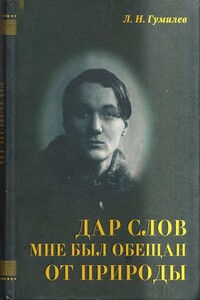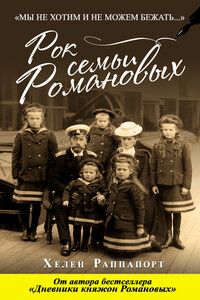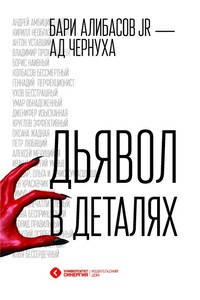The Boy Scouts In Russia - [19]
Fred's work, he soon found, was simplicity itself. He was to do the bidding of any officer. He was sent on errands, from one part of the house to another; often he carried written messages, handed to him by staff officers, to the room in which three telegraph operators were hard at work. Generally speaking, he was there to do odd jobs and make himself generally useful. Luckily, he was taken for granted. Everyone seemed assured that he was one of the village boys, pressed into service because he happened to be the first one to come along.
But for the first hour or so it was impossible for him to make any attempt to discover if Boris was still in the house. He was too busy, and he dared not spoil his opportunity to learn something really worth while by seeming to spy about. He was rewarded before long for his patience, for just as he was beginning to despair, an officer spied him in a moment when he was not actively engaged upon some errand.
"Here, boy," called the officer, "take this tray!"
Fred took a tray from a soldier who was holding it awkwardly.
"Take it upstairs to the room on the third floor where a sentry is on guard. He will let you in. When the prisoner there has finished his meal, return with the tray to the kitchen. Do not let any knife or fork or spoon stay in the room when you go. So you will make yourself really useful and release a man who can do things for which you are too young."
It seemed to Fred, as he started upstairs with his tray, that this luck was almost too good to be true. He scarcely dared to hope for what had seemed to him the inevitable explanation of his errand. But when the sentry opened the door of the locked room, and he looked in, he saw Boris sitting dejectedly on the side of a bed. It was all he could do to suppress a cry of delight, but he managed it, and he was hugely tickled as he saw Boris's indifferent glance at him. His disguise must be good, or Boris would have known him. He put the tray down, and then walked to the window. He looked down first, and then up. Then with a grin, he turned to his cousin.
"Not a word," he said, quickly. "Do you know me?"
Boris stared; then a smile broke out all over his face. There was no need for him to put his answer into words. Fred came very close.
"Speak low, but do not whisper," he said. "Tell me, what have they done to you?"
"Nothing. Colonel Goldapp has been too busy to see me."
"I don't wonder! Boris, this is no colonel's headquarters. It is more like that of an army corps. And there is at least one general here. His name is von Hindenburg."
"Von Hindenburg? He is commander-in-chief in East Prussia! If he is here, there must be a German concentration in this region! They did not expect that! Oh, I must get out and get the news back-"
"Yes. The wireless is working. I talked this afternoon to Suwalki."
And in a few words he told Boris the essential facts of what had happened since the raid upon the great house on the hill on that morning.
"How often do they come in here?" he asked.
"Only when my meals are brought to me. There will be no one else now to-night, I think, unless Colonel Goldapp sends for me. They are very polite. I think I shall be alone most of the time. They have no idea that I will try to get away, because they think I know they have so many sentries and patrols about that it would be useless for me to try to do it."
"Listen, then, Boris. I will go now. I think they will let me go now. I have been working hard for them about the house. But I will come back later. Stay near your window, so that I can see a handkerchief if you hold it. Then I will throw up a stone with a string tied about, and you can draw up a rope and slip down. If this general is so important we ought to let them know. I will send the word by wireless and then come back."
"Good! It is risky for you. They wouldn't spare you if they caught you trying to help me to get away. But if you can manage it at all, have clothes like the ones you wear ready for me, in a bundle. Vladimir will get them for you."
Fred nodded, and was off at once. He was detained a little time when he went down with the tray, but he pleaded finally with a kindly looking officer, telling him that he was very tired, and had not expected to stay away from home so long, and was allowed to go. He went to the opening of the tunnel, found that the place was unguarded, and decided from the general appearance of the hollow that it was not visited by soldiers. Indeed, it was within the outer line of sentries, and, in a way, safer because of that. Had it been beyond that line, it would have been much harder to reach.
The operator at Suwalki, when he called him by wireless, complained bitterly, saying that he had been trying for hours to get an answer. Boris's father had been heard from and was extremely anxious to get into touch with his son. But it seemed the news that Fred sent made up for this. The man at Suwalki was incredulous.
"Our information is that General von Hindenburg is many miles from where you are," he flashed back. "Are you sure of your facts?"

В настоящем издании впервые в наиболее полном виде представлено художественное наследие выдающегося историка XX века Льва Николаевича Гумилева, сына двух великих русских поэтов — Анны Ахматовой и Николая Гумилева. В книгу вошли стихи, поэмы, переводы, художественная проза, некоторые критические работы. Ряд вещей публикуется впервые по рукописям из архива Л.Н. Гумилева. Издание сопровождается вступительной статьей и подробными комментариями. Выражаем благодарность директору и сотрудникам Музея истории и освоения Норильского промышленного района за предоставленные материалы. В оформлении издания использована фотография Л.Н.

Новая книга от автора бестселлеров «Дневники княжон Романовых» и «Застигнутые революцией» посвящена самой неизвестной странице жизни последнего российского императора – попыткам спасти от гибели Николая II и его семью. Историческое расследование, основанное на недавно обнаруженных архивных материалах из России, США, Испании и Великобритании, прежде недоступных даже отечественным историкам, тщательно восстанавливает драматические события весны и лета 1917 года. Венценосные европейские родственники Романовых и матросы-большевики, русские монархисты и британские разведчики – всем им история отвела свою роль в судьбе российской царской династии.

В книге рассказывается история главного героя, который сталкивается с различными проблемами и препятствиями на протяжении всего своего путешествия. По пути он встречает множество второстепенных персонажей, которые играют важные роли в истории. Благодаря опыту главного героя книга исследует такие темы, как любовь, потеря, надежда и стойкость. По мере того, как главный герой преодолевает свои трудности, он усваивает ценные уроки жизни и растет как личность.

Эта необычная книга содержит в себе реальные истории из мира сегодняшнего российского бизнеса. В одних рассказывается о том, как предприниматели успешно разрушают бизнес-предрассудки «теоретиков», в других, наоборот, описаны катастрофические провалы, возникшие в результате принятия правильных, на первый взгляд, решений.Написанная с присущим автору остроумием книга «Дьявол в деталях» не столько о кейсах, сколько о правде жизни типичных российских предпринимателей.«Фишка» книги — авторские иллюстрации-«демотиваторы».Книга будет интересна широкому кругу читателей, занимающихся бизнесом, но особенно будет полезна тем, кто только собирается открыть собственное дело.2-е издание, стереотипное.

В книге рассказывается история главного героя, который сталкивается с различными проблемами и препятствиями на протяжении всего своего путешествия. По пути он встречает множество второстепенных персонажей, которые играют важные роли в истории. Благодаря опыту главного героя книга исследует такие темы, как любовь, потеря, надежда и стойкость. По мере того, как главный герой преодолевает свои трудности, он усваивает ценные уроки жизни и растет как личность.